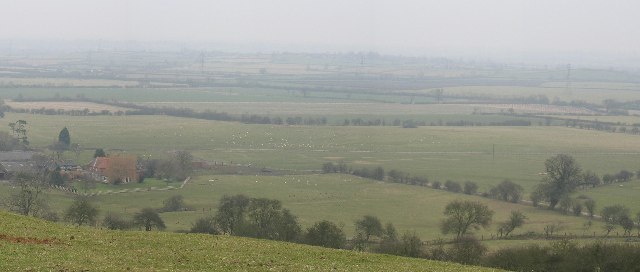As I grow older, I find my mind wandering to new and different thoughts while watching some of my favorite genres of media. As kids, we watch the Hulk throw a car and think “THAT’S AWESOME!” As adults, we increasingly think instead “That’s awesome! And I feel so bad for the person who owned that car. How expensive will that be? Will their insurance cover it? How exactly does insurance work in a world with superheroes…” One such musing has occupied me for a while, triggered by rewatching Lord of the Rings while also playing Lord of the Rings Online. As Howard Shore’s beautiful score highlighted the breathtaking plains of the kingdom of Rohan on my TV screen, I couldn’t help but wonder: where is all these people’s food coming from?
In Peter Jackson’s films, Rohan, kingdom of the Horse-lords, is made up entirely of rolling golden steppe- and scrub-land, the kind of environment that one could ride for miles across chasing the edge of the horizon. The problem is that, for such a populated kingdom that also keeps great herds of horses, it is not the kind of environment that could produce enough produce, if ever we even saw an operational farm onscreen. Similarly, the great city of Minas Tirith as portrayed by Jackson lacks any hinterland to support such medieval urbanization; the only farmland we ever see is in the bucolic Shire before the heroes begin their journey. This problem isn’t confined simply to one movie franchise, either. The Dragon Age games largely omit true agricultural endeavor, while horror fantasy like Diablo essentially portray a humanity besieged by demons and vile creatures–even if one wanted to leave the walls to farm, it would be nearly suicidal.
So why am I talking about this on a history blog? Well, I can’t help but feel that the modern age of factory farms and globalized supply chains have divorced us from the historical needs of organized society felt so acutely by our ancestors. It’s telling that the Lord of the Rings films strike a different tone than J.R.R. Tolkien’s books, feeling much more post-apocalyptic and under-populated compared to the Professor’s fairly standard, if beleaguered, medieval world. The fact is, in order to simply exist as a community, any village, town, or especially city since before recorded history has required a hinterland to feed its gathered peoples. While today that hinterland can exist virtually anywhere in the world, before the 19th century only a few staple goods could be reliably shipped very far, and most cities were tied to the literal hinterland outside their walls. Even Athens, whose strategy during the Peloponnesian Wars of the fifth century BC involved supplying its citizenry with grain imported from the Black Sea, still drew such a large amount of sustenance from its outlying farms that their opponents’ decision to encamp year-round in the fields and deny the harvest played a major role in the Athenians’ ultimate defeat. Indeed, the importance of local agricultural endeavor and produce to urbanization even gives lie to the classic middle school social studies term “city-state,” as only in the past century have city-states like Singapore truly begun to exist in their own right.
When modern fantasy projects take into account this historical realism, it makes for a much richer storytelling experience. One of its many successes as an adaptation is Lord of the Rings Online’s plentiful inclusion of farmland, especially in Rohan and Gondor, in ways that both supports its more heavily populated world and makes the world feel more lived-in. For all my trepidation over Amazon’s upcoming Rings of Power series, I am heartened by the trailers’ inclusion of much mundane medieval activity–including farming–for this same reason. I can only hope that future authors and filmmakers follow these examples more than others, if for no other reason than my adult historian brain can fixate on something else equally as small yet consequential in their world building.
